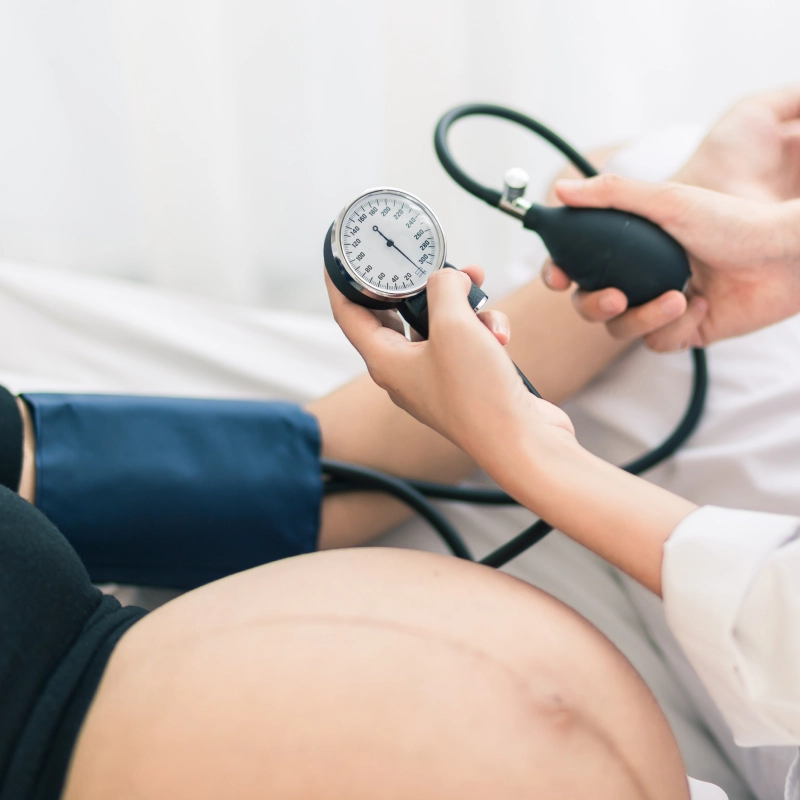
Pregnancy is a miraculous and transformative journey for women, but it comes with its own set of challenges. Pregnancy-induced hypertension (PIH), also known as gestational hypertension, is one such challenge that can affect both the mother and the unborn child.
What is Pregnancy-Induced Hypertension?
PIH is a condition characterized by elevated blood pressure during pregnancy. It typically occurs after the 20th week of gestation and resolves after childbirth. While the exact cause remains unknown, factors such as a woman's age, family history of hypertension, and multiple pregnancies may contribute to its development.
Risks Associated with PIH
- Complications for Mother: PIH poses serious risks to the mother, including the development of preeclampsia, a more severe form of the condition. Preeclampsia can lead to organ damage, seizures (eclampsia), and even maternal death if left untreated.
- Complications for the Baby: PIH can adversely affect fetal growth and development, leading to low birth weight and preterm birth. In severe cases, it may result in stillbirth or other complications for the newborn.
Causes of PIH
The exact cause of Pregnancy-Induced Hypertension (PIH) is not fully understood, but several risk factors have been identified. These include
- First-time Pregnancy: Women experiencing their first pregnancy are at a higher risk of developing PIH.
- Age: Women under 20 and over 40 are more susceptible to PIH.
- Multiple Pregnancies: Carrying twins or multiples increases the risk of developing hypertension during pregnancy.
- Obesity: Women with a higher body mass index (BMI) are at an increased risk.
- Pre-existing Conditions: Chronic hypertension, diabetes, kidney disease, and certain autoimmune disorders can contribute to the development of PIH.
Symptoms of PIH
High Blood Pressure: Elevated blood pressure is the hallmark symptom of PIH. A blood pressure reading consistently higher than 140/90 mm Hg is indicative of the condition.
- Proteinuria: Protein in the urine, a condition known as proteinuria, is a common sign of preeclampsia. Regular prenatal check-ups are crucial to monitor this parameter.
- Swelling: Excessive swelling, especially in the hands and face, can be a sign of PIH. It is essential to distinguish between normal pregnancy-related swelling and that associated with hypertension.
Management and Prevention
Here are some pregnancy-induced hypertension treatments:
- Regular Prenatal Check-ups: Early detection of PIH is vital for effective management. Regular monitoring of blood pressure and urine for protein during prenatal visits can help identify the condition promptly.
- Healthy Lifestyle Choices: Adopting a healthy lifestyle is crucial in preventing and managing PIH. This includes maintaining a balanced diet, engaging in regular, moderate exercise, and avoiding smoking and excessive alcohol consumption.
- Medication and Bed Rest: In cases of severe PIH or preeclampsia, medication may be prescribed to lower blood pressure and prevent complications. Bed rest might also be recommended to reduce stress on the cardiovascular system.
- Hospitalization for Severe Cases: Severe cases of PIH may require hospitalization for close monitoring and to manage complications promptly. In extreme situations, early delivery through induction or cesarean section may be necessary.
Conclusion
Pregnancy-induced hypertension is a complex condition that requires careful monitoring and management to ensure the well-being of both the mother and the baby. Early detection, lifestyle modifications, and appropriate medical intervention play pivotal roles in mitigating the risks associated with PIH. By staying informed and maintaining a proactive approach to prenatal care, women can navigate through pregnancy with a reduced risk of hypertension-related complications, promoting a healthier start for both mother and child. It is essential to seek guidance from healthcare professionals at Sakra World Hospital to tailor a personalized care plan that addresses the specific needs of each individual during pregnancy.

